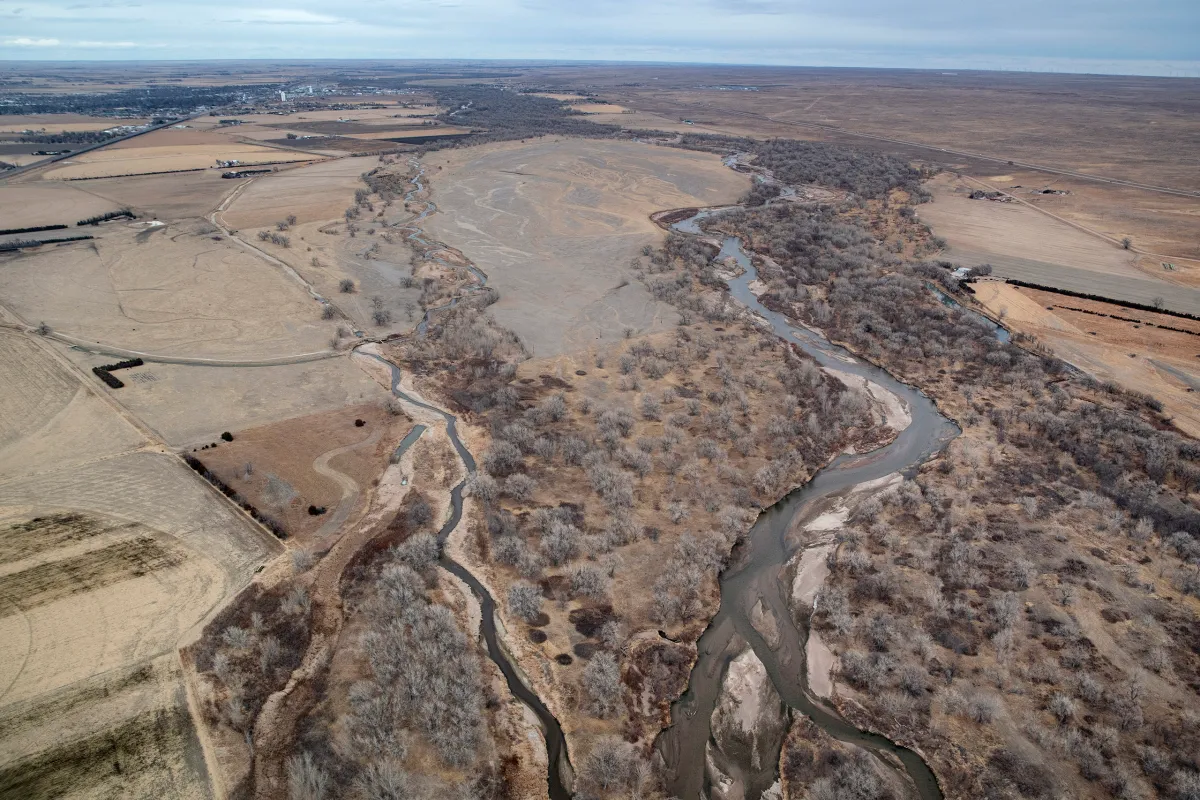In a bold move, Colorado Attorney General Phil Weiser has taken action to protect landowners in northeastern Colorado, sending a letter to county commissioners pledging to defend their rights against Nebraska’s proposed Perkins County Canal Project. This letter comes in the wake of Nebraska’s recent move to condemn land for the project, which involves diverting water from the South Platte River to a storage facility across the state line.
On January 17, 2024, six landowners in Sedgwick County, where the South Platte River exits Colorado, received notices from Nebraska offering $1.4 million for approximately 650 acres of land. The state of Nebraska gave the landowners 90 days to either sell or face the threat of eminent domain. This development marks a significant escalation in a dispute that has been simmering for years, raising concerns about the future of water rights in both states.
Attorney General Weiser expressed his alarm, saying, “We are in a new chapter, there has been a shift,” in an interview with The Colorado Sun on Friday. He added, “I had hoped it would never come to this, but as it happens, we’re no longer in the hypothetical, ‘what might they do, I hope they don’t do this’ world. We’ve moved into ‘they’re really doing this.’”
The Perkins County Canal Project: A Growing Concern
Nebraska has been slowly progressing with plans to construct the $628 million Perkins County Canal since April 2022, when the Nebraska legislature approved the project due to concerns over Colorado’s increasing water use. The canal would redirect water from the South Platte River to a storage facility located in Nebraska, with the goal of alleviating Nebraska’s water shortage.
The South Platte River Compact, an agreement ratified by both states in 1923, grants Nebraska the right to build the canal and use eminent domain if necessary. Nebraska had attempted to build a similar canal in the 1890s, though the project was abandoned. However, remnants of that effort can still be seen today along Interstate 76 in Colorado.
While the compact grants Nebraska certain rights, Weiser’s office is raising legal concerns. The attorney general views the use of eminent domain by one state in another state’s jurisdiction as unprecedented and is ready to challenge it in court. “Usually you have Colorado using eminent domain in Colorado, maybe you have the federal government using the power of eminent domain. But another state using the power of eminent domain in a different state, that’s a very different situation,” Weiser said. He also emphasized that, should litigation arise, it could potentially reach the U.S. Supreme Court.
Colorado’s Response: Legal Action and Advocacy for Landowners
Colorado officials have long been critical of the project. When Nebraska first introduced the idea, Colorado’s governor, Jared Polis, described it as a “bad-faith attempt to undermine a century-long successful compact” and warned that it would become an expensive burden for Nebraska taxpayers. Early on, Colorado had taken a more passive stance, believing that the project would eventually fall through. However, as Nebraska began appropriating funds for the canal, Weiser began making trips to northeastern Colorado to brief local residents.
“I said, we’re going to be watching closely and preparing for the possibility, but I also said I think this feels more like a political stunt. It doesn’t make sense,” Weiser recalled. But as the project continued to gain momentum, Colorado officials became more engaged. In response to Nebraska’s official evaluation in March 2023, Colorado’s state engineer sent a letter that essentially dismissed the feasibility of the project, stating that the water Nebraska hoped to divert would likely not materialize.
However, Weiser’s recent letter was much more direct. He warned Nebraska that Colorado’s office would take legal action if Nebraska pressed forward with its plans, urging Sedgwick County landowners to seek legal counsel regarding their land’s potential condemnation.
The Bigger Picture: Water Rights and Federal Involvement
The dispute over the Perkins County Canal is part of a broader issue concerning water rights in the region. Colorado farmers in the Republican River basin, which extends from the northeastern corner of Colorado to southern areas of the Eastern Plains, have faced significant challenges related to water availability. To address these issues, the federal government recently provided $30 million in funding to assist farmers in idling 17,000 acres of agricultural land in compliance with the Republican River Compact. This move was necessary to meet a critical water supply deadline for Kansas.
As the Perkins County Canal Project continues to unfold, the legal and environmental ramifications of such large-scale water projects could have lasting effects on both states. Colorado’s legal defense of its landowners could set a precedent for future water disputes and eminent domain cases.
Disclaimer – Our team has carefully fact-checked this article to make sure it’s accurate and free from any misinformation. We’re dedicated to keeping our content honest and reliable for our readers.








